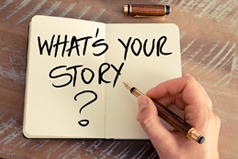The Declaration of
Interdependence
Interdependence is the healthy state of mutual need shared by independent or
autonomous beings. All of life is interdependent; we all need and depend on each
other in healthy appropriate ways.
The Lantana bush does not say to the green caterpillar, which voraciously
munches her leaves,
Get off of me you #@*^% S.O.B, stop hanging on me and chewing me up!
She knows that it is part of the perfect cycle of the life for the caterpillar,
and for the Lantana bush. In due time the caterpillar spins her cocoon, and
emerges as a brilliant orange butterfly, who in turn propagates the Lantana
bush. In time the leaves that have been eaten by the caterpillar, grow back and
the Lantana bush is none the worse for wear!
It is the perfect cycle of life. It is the relationship between two autonomous
fully evolved entities, doing exactly what each is meant to do.
Human beings too, are interdependent. We have the biological need to create new
life. A healthy man and a healthy woman create a baby. The mother gives birth,
loves her baby, and feeds him or her from her breast. The baby thrives, grows
strong, becomes a man or woman, and produces new life. Thus the cycle of life
continues
The problems begin in human beings when the natural healthy cycle of life is
disrupted. This can occur when the mother and father are not emotionally
healthy, and do not want their baby. The baby is not made to feel loved, and
does not thrive. This also occurs when the mother and father want the baby to
conform to unrealistic standards of behavior that are part of their own
unhealthy agendas. In this case the baby becomes confused, because her own
instinctive behavior is disrupted, and an artificial mode of conduct inserted.
She begins to doubt herself. At this stage in her life, if she is not lovingly
nurtured, she becomes fearful and withdrawn.
As the baby grows and begins to assert her independence, the healthy caregiver
encourages her, supports her efforts, and is there to pick her up when she
falls. And fall she must, because nothing is achieved without a few falls along
the way. If she is shamed at this point in her early development, she will
become unsure of herself.
When the healthy child goes to school, she will interact with the other children
with confidence. Her parents do not expect her to be brilliant at everything,
but simply to try her best. At this point the child who is not nurtured gives up
and meets challenges with doubt and apathy, or acts out and is disruptive. These
are completely appropriate responses for a child who has not been nurtured, but
are usually met with disapproval from teachers and other children alike. This
gives the child the idea that
I am not good enough, smart enough, and pretty enough. There is something
wrong with me.
When the wounded child who feels, not good enough, enters her teenage years,
she discovers a whole new way to seek approval, and dull her pain. Drugs and
alcohol can anesthetize her bad feelings, sex can give the illusion that she is
loved and valued, compulsive eating can fill the empty space inside her, and
compulsive spending and shop lifting can make her feel a false sense of power.
All these unhealthy behaviors lead to unhappy outcomes: addiction, unwanted
pregnancies and STDs, obesity and jail. This all further reinforces the
feelings of not being good enough.
She thinks to herself, No matter what I try, it doesnt work. My parents must
be right. There is something wrong with me.
Sadly many people stumble through life without ever healing this initial wound.
Many people form co-dependent relationships. Unlike interdependence which is the
union of two autonomous beings, codependence is the union of two unhealthy souls
A codependent relationship cannot thrive because its very nature is flawed.
The codependent relationship is between two wounded people, a victim and a
rescuer. The rescuer feels it is her role to save the victim, who is often
addicted to some unhealthy substance. The rescuer feels a false sense of
empowerment by doing so.
He needs me, she thinks. I am needed, therefore I am valuable.
This is a lose/lose deal, as neither the victim nor the rescuer can grow and
become autonomous. In order for the rescuer to have someone to save, and for her
to feel needed, she must have a victim. The victim remains sick, because he
may be afraid that if he becomes healthy and independent, the rescuer will leave
him, or he will leave her. Or he may remain sick, because he has not realized
that its much more fun to be healthy. Often victims feel a false sense of power
and control by remaining sick, and manipulate others into their drama. Rescuers
control and resent the victims.
Thus the unhealthy cycle continues through years, decades, lifetimes and
generations. Most often this behavior is mirrored from behaviors learned in
childhood. In alcoholic families, the disease of alcoholism may have existed for
generations. The child of an alcoholic parent or parents may come to expect
angry unstable irrational behavior as the norm. Abused children often become
abusers.
The codependent child may feel that it is her role in life to assume the
responsibility for another who cannot take care of himself. Although hurt by the
angry unstable behavior of her partner, she may feel that she can, Make him
change . This is not possible, as change can only come from within. Healing the
deep wounds of childhood is a long slow process
Therapy, Twelve Step Groups, meditation, prayer, contemplation and solitude,
friendship and fellowship, creative pursuits, time spent in nature, and
ultimately the love of and for others, all help us to heal.
The most difficult challenge for one who has been wounded is to trust another.
Wise discrimination is essential in determining just who to trust. The deep
healing work required to heal deep wounds can only occur in relationship with
another. This is an ongoing process, much like peeling the layers of skin off of
an onion. There is trial and error involved. Often the childhood wounds are
reopened with great pain. Self-realization does not come cheaply. Sometimes,
when we look inside, we do not like what we see.
But with courageous effort, perseverance, compassion and generosity for self and
other, we can unbury the innocent child within. The road to autonomy is a steep
and winding path.
The path of true love never does run smooth ,William Shakespeare writes in
Midsummer Nights Dream.
Honesty, openness and trust are the vehicles that carry the soul forward in
communion with another. Fear and denial are the locks that bolt the door, and
keep the frightened child hidden away inside.
It is the greatest joy in life to love, and to be loved. Human Interdependence
is the loving, serving, and mutual caring of two whole and complete beings.
Love can be romantic, or it can be a friendship, but all healthy love is mutual,
and safe. In an interdependent relationship both people are nourished and
enriched by the relationship, and each becomes happier, stronger and more joyful
from the shared experience.
Suzi E.
April 30, 2005




Recent Comments